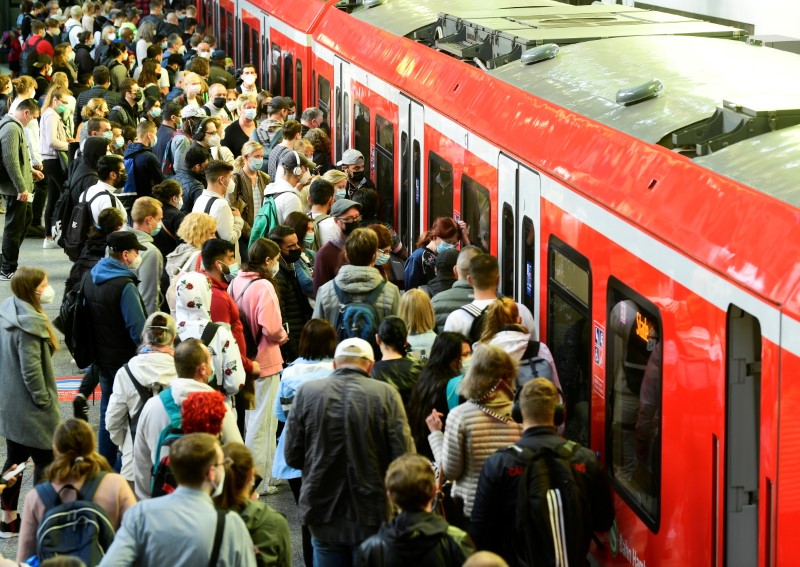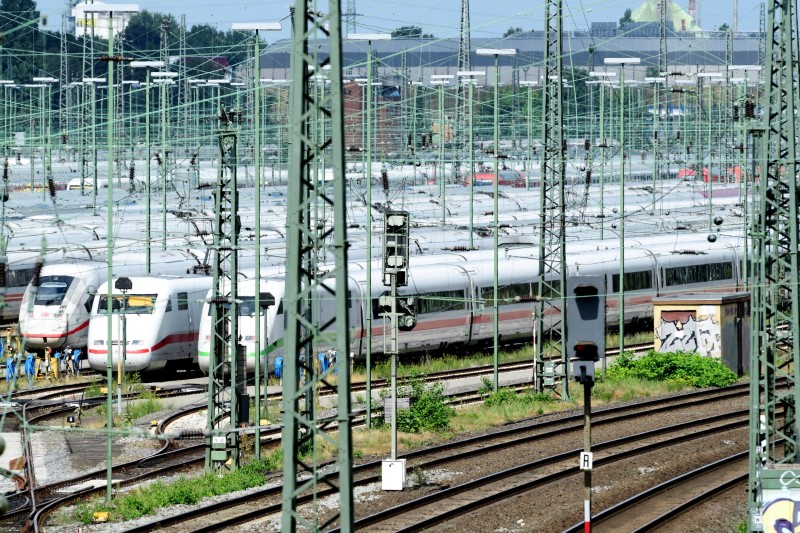BERLIN (Reuters) -A strike by train drivers over pay severely disrupted services across Germany on Wednesday, adding to pressure on European supply chains and frustrating passengers at a time of high demand during the summer holiday season.
With around 190 freight trains standing idle, Deutsche Bahn said in a statement the strike could have a major impact on industrial supply chains in Germany and across Europe, which have already suffered bottlenecks because of COVID-19.
Passenger demand is also high as many people are on the move during summer holidays following an easing of coronavirus restrictions.
Deutsche Bahn spokesperson Achim Stauss said the company was trying to keep one in four long-distance trains running and to have at least a trip every two hours between large cities.
"We are doing our best to get people to their destination today," Stauss said, urging travellers to postpone unnecessary trips.
The strike is due to run until the early hours of Friday.
A survey by Forsa for television broadcasters RTL and n-tv showed that 50% of respondents were opposed to the strike, while 42% viewed it as reasonable.
Stranded travellers stood waiting for their delayed trains at stations across Germany.
"The strike is understandable. I support it, but the problem is that there is hardly any information on the internet about it," said David Jungck, a traveller stranded at Berlin's main railway station.
Germany's VDA car industry association said the strike could add to problems in the logistics industry as it struggles to recover from the impact of the pandemic.
"If the strikes last longer, considerable costs can arise for companies because interrupted supply chains quickly lead to production stoppages," VDA president Hildegard Mueller told Reuters.
The GDL union, which represents some train drivers, will decide next week whether to continue the strike, its chief Claus Weselsky told broadcaster ZDF on Wednesday.
Weselsky said the strike, which started at 0200 local time (0000 GMT) for passenger services on Wednesday, had been successful so far, bringing around 700 trains to a standstill.
"Our colleagues went on strike in a very disciplined manner," Weselsky told Reuters, adding the union would only return to the negotiating table if Deutsche Bahn made an improved pay offer.
GDL is demanding wage increases of around 3.2% and a one-time coronavirus allowance of 600 euros ($700). Deutsche Bahn had offered wage increases in two steps for the next two years, but the union wants the raise to take effect earlier.
After reporting a loss of 5.7 billion euros in 2020, the state-owned railway said business had recovered since April, as COVID-19 travel restrictions eased and cargo traffic improved.
The firm said it expected to edge back to profit in 2022, but floods that hit western Germany last month had caused around 1.3 billion euros ($1.53 billion) in damage.

The last railway strike was called by the EVG workers union in December 2018 and lasted only four hours.
($1 = 0.8540 euros)
